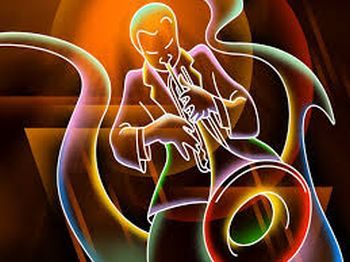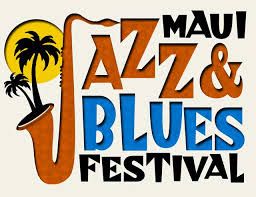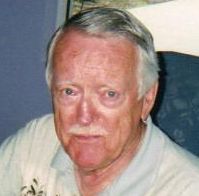
Publisher:
Bonnie King
CONTACT:
Newsroom@Salem-news.com
Advertising:
Adsales@Salem-news.com

~Truth~
~Justice~
~Peace~
TJP
Nov-21-2013 16:45

 TweetFollow @OregonNews
TweetFollow @OregonNews
Picasso Didn't Go There... My Three Musicians
Bill Annett Salem-News.comIf music be the food of love, play on... - Smutty Bill
 Courtesy: bubblews.com |
(DAYTONA BEACH) - There's an enigma about jazz. I mean traditional jazz, not the offshoots, the evolutionary branches. I mean the kind you might have heard on Bourbon Street in the Big Easy, although more likely, these days, drowned out by hard rock abominations. Trad. Where I live, in Dixie where it all started, anyone you might stop on the street doesn't even know what you're talking about. But in the Pacific Northwest, in Sacramento or Seaside, Olympia or Oak Harbor - or Penticton, B.C., you can find a jazz festival any weekend between March and October, if you care to drive 100 miles or so.

But there are geographical constraints. Early in the 90s, my enamorata and I were walking along a quiet street in Maui, as it happened deep in an atypical argument about something, when we were arrested, stopped dead in our tracks, by the strains of melody totally foreign to that Pacific paradise. That is to say, diatonic. To our rear, a trumpet was belting out what I immediately discerned as "Muskrat Ramble," a trombone sawing away in the lower register and a clarinet providing a contrapuntal obligato.
Retracing our footsteps, we discovered, slightly recessed from street level, a bistro with outside tables among which a clutch of Mainland troubadours were enthralling the tourists. In response to our query, they informed us that they were domiciled in far off La Jolla, and were in fact the advanced guard of what would shortly become The First Annual Maui Jazz Festival. We enrolled on the spot, but our hopes were dashed at the initial gig the following day. The event tragically became also The Last Annual Maui Jazz Festival.
Taking up residence in a leading hotel, the festival's opening venue was attended by nobody but (a) the same journeymen from California, bolstered by Bob Draga, a clarinet impresario from Kissimee, Florida, (b) my significant other and (c) me.
Meanwhile, hard by and overflowing two or three function rooms, the hotel's huge grounds and at least a hectare of beach, a luau held sway, with hundreds of twanging ukeleles and thousands of revelers.
Obviously we jazzers had encountered a cross-cultural failure in communication, unlike anything we'd ever experienced in the good old Pacific Northwest.
There's something else that blows me away: the talent and the devotion of jazz musicians. The straight-ahead musicianship displayed at a typical jazz festival is unbelievable, and guys - then at least, in the Nineties, of which I speak. (I have sought refugee status in Daytona since the Millenium Glitch made cowards of us all). In yesteryear, the cats would blow their brains out for 50 to 100 bucks a gig. I don't have to tell you about the obscene fortunes that leading rock bands get away with. (To end that sentence with a preposition, perhaps in protest. Like a Dixieland tag.)
In any event, it's time I was getting to my text. Which is that, in Vancouver - about as culturally removed from N'Orleans as it is from Dublin - we had a jazz club, the Hot Jazz Society, for more than 30 years. At its peak popularity in the early 1990s going full blast five nights a week. And for much of that lifetime, it's mainstay, it's central icon, the leader of the house band, was an amazing musician called Lance Harrison.
I first met Lance even before I knew The Club, when a group of us were fund-raising, the purpose of which is another story and unimportant here. Somebody directed us to Lance, who responded to our request for a jazz festival not only with his own band but by dragooning four other groups - all donating their time and talent. Lance, I learned, would play for a kid's birthday party or a dog fight or any other occasion at the drop of an arpeggio. He would play pro bono, or pass-the-hat, or union scale or - on New Year's Eve - whatever was the going rate. He may have had independent wealth, or perhaps he lived off the nourishment of music - I never found out, although I knew him for many years.
Lance could play anything. He played regular gigs as lead tenor sax in Dal Richards' big band. His own Dixieland Jazz Band consisted of trumpet, trombone, clarinet, bass, guitar, drums and piano, and Lance was the clarinet. He also played soprano sax, alto, occasionally a huge bass sax bigger than himself, and when the script called for it - a banjo. His wife told me once that for relaxation, at home, his instrument of choice was classical oboe.
 Self-Portrait - Pablo Picasso - WikiPaintings.org |
To illustrate, one Armistice Day, as was our wont, we, a delegation from the Jazz Club attended at the Billy Bishop Legion near Kits Beach, which was packed to the doors and Lance's band was in residence. When I had fought through to the tiny band stand, instead of the usual seven guys, I discovered only four musicians, one more than those in Picasso's famous painting. The reason for this paucity, I learned was austerity and a Legion budget that couldn't afford Lance's usual complement. There was Doug, the usual drummer, Frank the piano man, Gavin, the bass player, but uncharacteristically now nursing a clarinet and, as a consequence, Lance himself brandished a trumpet, which he appeared to be getting by with quite handily, like a modest Muggsy Spanier.
"How long has this been going on?" I asked, pointing at the unaccustomed trumpet.
"Oh, two or three weeks," Lance said. The guy could make music with a comb and paper or a washboard. And his voice - like Armstrong's - was his ultimate instrument. He could remember lyrics from the Twenties, even later when age caught up with him and like all of us, he began to lose his faculties.
In that regard, I remember once in later years when I returned from my annual snowbird sojourn, I checked in at The Club and noted that Lance's group was on the stand. The guys in the band had told me on former occasions that Lance was beginning to stagger, he was unsteady on the band stand, they feared for his perhaps falling off the stage. He was, I suppose by this time, approaching 90.
And now as I watched, he was bumbling around on stage, looking vacant, looking for his instruments.
"He's finally lost it," I thought, with a catch in my throat.
Just then, the band swung into an old stand-by, and Lance, stooping, picked up his tenor from its stand. He hooked it on, swung it up and proceeded to roll out three incredible choruses, as innovative, as fresh and as varied as any improvisation he'd ever done. Then he stood there, amid the applause, looking a little doubtful, and walked unsteadily over to the piano to give Frank some instruction or other.
One notable exception to the western bias I've been indulging in, particularly if you're a Biederbecke scholar, is the great Bix Jazz Festival in his hometown of Davenport, Iowa, which has been going on annually in July almost since Bix checked out prematurely not long after Satch was still recording with his Hot Five. In fact it was Louis himself who once said: "All the cats try to sound like Bix, but nobody ever do." Bix's friend Hoagy Carmichael said that Bix's silvery tone had never been duplicated before or since.
But I digress. Actually I can get back to Lance by mentioning that a few years ago at one of Florida's few concessions to America's purest art form - the Suncoast Classic Jazz Festival in Clearwater - I was fortunate to meet Spiegel Wilcox, who had the distinction of being the only surviving jazz man who had played with Bix Biederbecke's Wolverines. The neophyte he had replaced on trombone was a youth called Tommy Dorsey who segued into the big-band era.
Spiegel played on that Clearwater occasion with Bob Draga, and I can recall that at the age of 96 he (not Draga) was not great. But he was good. And following one set, I asked him if he knew Lance Harrison. He thought for a minute and then said:
"Oh, he's that young Canadian who plays reeds."
As a matter of fact, it was two or three years later that I learned - at the Bix Festival, of course - that Spiegel had played his last slush-pump riff. And I think it was about the same time that Lance checked out also.
I happened to be back in Vancouver shortly after that, so I was there the night we held a wake at the Hot Jazz Society for him that Lance would have loved. Every regular from Victoria to San Diego showed up literally to play him to the cemetery as they do in The Big Easy. Revolving musicians and a cash bar going full blast for five hours. All the guys playing pro bono, of course, just the way Lance had done so often himself.
But since Lance and Spiegel did their ultimate gig at about the same time, I get this mental picture of the two of them - Lance on clarinet and Spiegel on trombone - sitting in as side men with Bix and his trumpet, and maybe the angel Gabriel.
Now THAT would have been a great session, welcomed at a N'Orleans rent party or a boite on 52nd Street in the Big Apple. My three musicians.
Picasso would have gone straight.

Bill Annett grew up a writing brat; his father, Ross Annett, at a time when Scott Fitzgerald and P.G. Wodehouse were regular contributors, wrote the longest series of short stories in the Saturday Evening Post's history, with the sole exception of the unsinkable Tugboat Annie.
At 18, Bill's first short story was included in the anthology “Canadian Short Stories.” Alarmed, his father enrolled Bill in law school in Manitoba to ensure his going straight. For a time, it worked, although Bill did an arabesque into an English major, followed, logically, by corporation finance, investment banking and business administration at NYU and the Wharton School. He added G.I. education in the Army's CID at Fort Dix, New Jersey during the Korean altercation.
He also contributed to The American Banker and Venture in New York, INC. in Boston, the International Mining Journal in London, Hong Kong Business, Financial Times and Financial Post in Toronto.
Bill has written six books, including a page-turner on mutual funds, a send-up on the securities industry, three corporate histories and a novel, the latter no doubt inspired by his current occupation in Daytona Beach as a law-abiding beach comber.
You can write to Bill Annett at this address: bilko23@gmail.com
 |
 |
 |
 |
 |
 |
 |
Articles for November 20, 2013 | Articles for November 21, 2013 | Articles for November 22, 2013



Quick Links
DINING
Willamette UniversityGoudy Commons Cafe
Dine on the Queen
Willamette Queen Sternwheeler
MUST SEE SALEM
Oregon Capitol ToursCapitol History Gateway
Willamette River Ride
Willamette Queen Sternwheeler
Historic Home Tours:
Deepwood Museum
The Bush House
Gaiety Hollow Garden
AUCTIONS - APPRAISALS
Auction Masters & AppraisalsCONSTRUCTION SERVICES
Roofing and ContractingSheridan, Ore.
ONLINE SHOPPING
Special Occasion DressesAdvertise with Salem-News
Contact:AdSales@Salem-News.com

Terms of Service | Privacy Policy
All comments and messages are approved by people and self promotional links or unacceptable comments are denied.
[Return to Top]
©2025 Salem-News.com. All opinions expressed in this article are those of the author and do not necessarily reflect those of Salem-News.com.